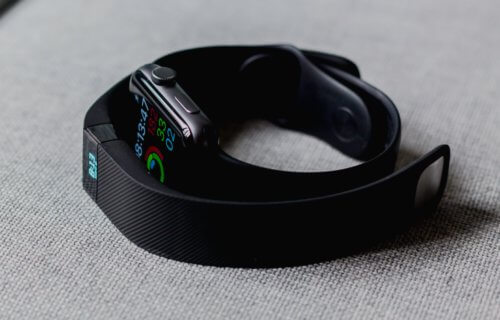SAN FRANCISCO — Tech companies may claim their smartwatches can accurately detect heart rhythm disorders, but one cardiologist from the University of California-San Francisco warns that such claims are premature.
These devices need much more testing before any conclusions can be drawn regarding their ability to accurately and safely detect faulty heart rhythms, according to Gregory Marcus, MD, MAS, a UCSF professor of medicine with the Division of Cardiology. Dr. Marcus specializes in heart arrhythmias and was among the first scientists to analyze the potential of smartwatches regarding the detection of possible atrial fibrillation (AFib), a serious cardiovascular condition characterized by an irregular heartbeat known to increase the risk of deadly stroke.
In his latest opinion piece, Dr. Marcus says much more scientific evaluation is necessary to accurately put together and validate consensus recommendations for the use of such devices in AF detection. The benefits must outweigh the potential risks for consumers. This opinion article is a direct response to a recent study that focused on the utility of Fitbit watches for detecting AFib.
“Smartwatch detection of AF holds tremendous promise, but substantial work is needed to integrate this consumer-received information into optimized care of our individual patients and the well-being of the public,” Dr. Marcus explains in a media release.
On an annual basis, estimates show AFib contributes to roughly 158,000 U.S. stroke deaths. Additionally, the condition can seriously diminish a patient’s quality of life. However, AFib just isn’t common enough among the greater population to warrant population-wide screening by trained cardiologists via ECG data obtained using gold-standard, 12-lead electrocardiographs.
How does smart technology examine the heart?
A number of years ago, Dr. Marcus and colleagues first looked into the potential of the Apple watch as a means of detecting AFib. Both Apple watches and Fitbits make use of optical “photoplethysmography” (PPG) sensors to track pulse. So, by using ECG measurements to confirm the presence or absence of AF, Dr. Marcus and his team did in fact conclude that smartwatch detection of irregular timing of heartbeats could point to legitimate cases of AFib.
Fast forward a bit, and the most recent smartwatch models now boast even more refined algorithms that mathematically analyze PPG data, subsequently determining whether to alert the wearer about heartbeat irregularities. Some current smartwatch models even feature single-lead electrocardiograph sensors that users can activate.
READ: Best Fitness Trackers For 2023: Top 5 Wearable Technology Devices Recommended By Experts
For the Fitbit Heart Study, researchers found that just over one percent of 455,699 participants experienced one or more irregular heart rhythm detections. Roughly a third of those who experienced an irregular heartbeat and then went on to wear a single-lead ECG monitor experienced an abnormal ECG reading indicative of AFib. Still, more studies are urgently needed to better assess risks and benefits, Dr. Marcus asserts.
“We might find that it makes sense for those at low-risk to opt out of alerts based on PPG data analysis,” he explains.
Not much is known or established regarding AFib health outcomes associated with smartwatch screening. So far, no intensive studies have been carried out to evaluate the accuracy of AFib detection via irregular heartbeat alerts triggering immediate ECG recording.
Who will develop atrial fibrillation?
AFib tends to become more common with age, but the heart condition is unlikely to ever impact more than one percent of American adults. However, Dr. Marcus explains about five percent of those over the age of 60 will develop AFib. The risk is highest among people with pre-existing heart conditions. Additional risk factors include chronic health conditions, including changeable habits and conditions like obesity and alcohol consumption.
Dr. Marcus notes that even a highly specific screening test can still lead to most positive results being falsely positive when disease incidence is low. Imagine a fictional screening test that boasts high accuracy; 95 percent “specificity” and “sensitivity.” Well, that means five percent of true negatives would falsely test positive. If AFib incidence across a screened population is one percent, that means roughly five people may be wrongly diagnosed for every person who is accurately diagnosed.
A false positive result comes along with its own unique set of risks, such as unnecessary worry and anxiety, unwarranted utilization of medical resources, and in many cases, treatments that end up doing more harm than good.
For now, Dr. Marcus suggests that patients who have already been diagnosed with AFib are probably among those most likely to benefit from smartwatch use.
“Real-time AF detections can empower patients to identify triggers of their AF, to assess the effectiveness of various therapies, and to determine if vague or general symptoms are due to their arrhythmia or something else,” the researcher concludes.
The report is published in the journal Circulation.

